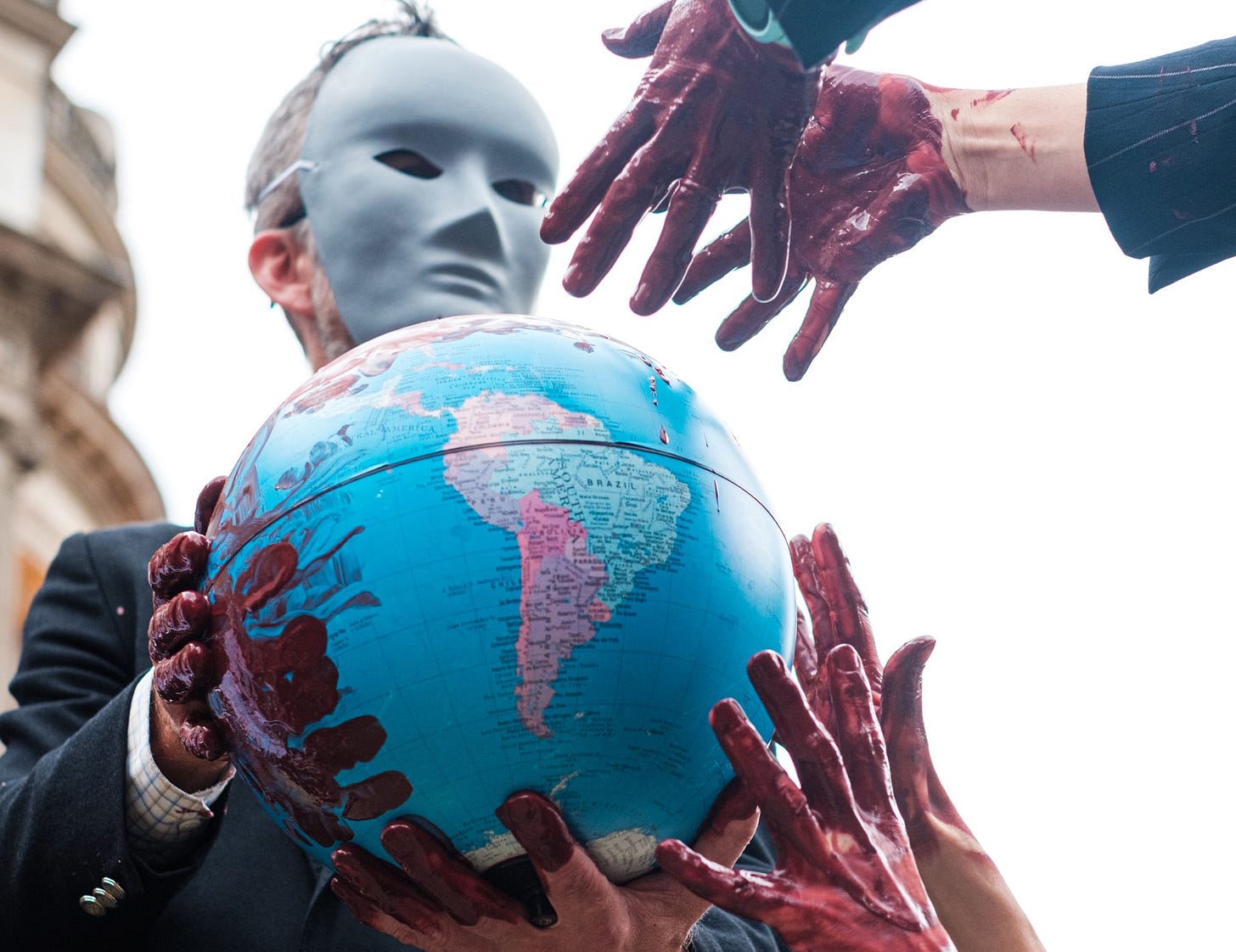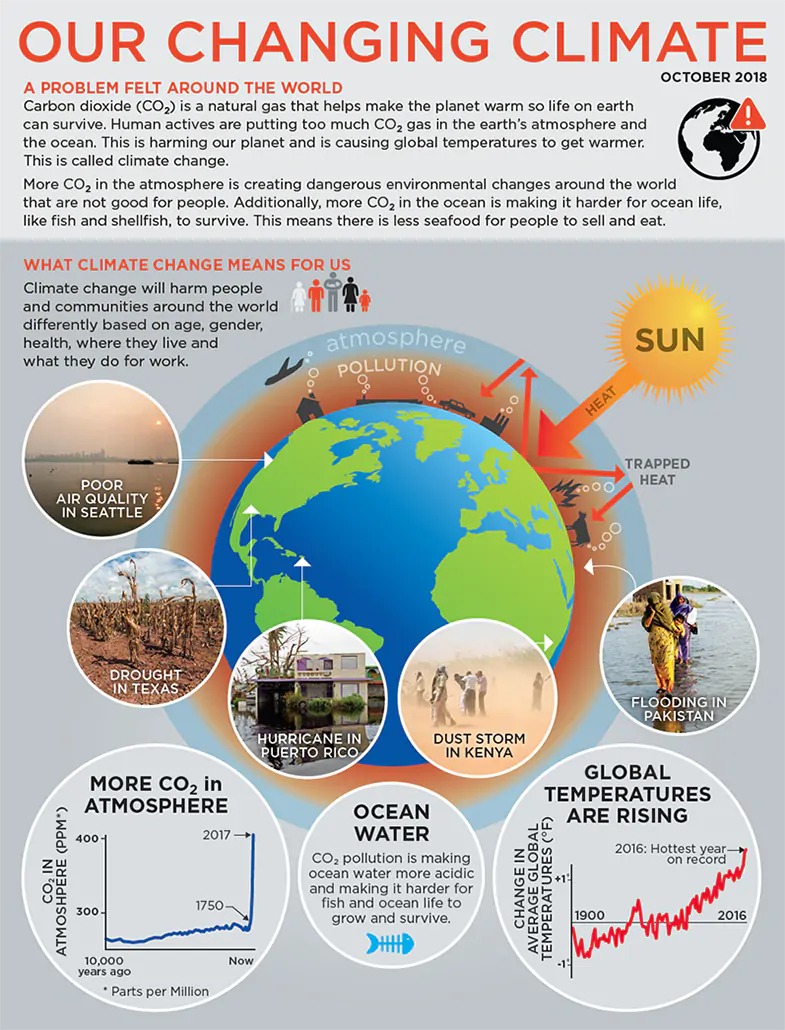The Moral and Ethical Dilemmas of Climate Change
Can we preserve our beautiful paradise, flying through space, or will we let it die as we kill ourselves?
Welcome to Terra’s Hell by me, Todd Daniel. This is the latest version of my blog, which I originally started in 2004.
I am but a tiny spec in the sea of humanity and in this universe, but something keeps telling me to write. I feel like a screaming ant. I’m so little that no one can hear me.
But I’m terrified. The Earth is 4.5 billion years old and in just 200 years we’ve trashed it. The Political Correctness police will slap me and try to push me back into conformity, but I am choosing to be the lonely voice in the night. Sooner or later someone might fire off some nukes, but the world’s greatest immediate threat now is climate change.
Perhaps the scientists and media have done a poor job explaining the issue or maybe the oil companies have done too good of a job spreading misinformation and doubt. Either way, it seems like the mass public doesn’t want to deal with it.
The Dilemma
I can’t even say that I want to “save the world” without people challenging me. They ask, “Do you mean save humanity or save the Earth?”
So I pondered that question for a while and here’s what I decided: Humans are just one of 8.7 million species that we share the Earth with. We are no worse or better than an earthworm or fungus. We all have a right to be here and live together in the ecosystem. While it’s believed that a few animals have consciousness, we have a HIGHER consciousness and intelligence. We are the only animal on this planet that’s shooting probes into space. Thus, I feel we have a higher responsibility to take care of the other life on this planet; not destroy it. So, to answer the question, I want to save the planet and ALL living things, including us.
My colleagues have also told me, “Don’t worry, Todd. The Earth will recover once humanity wipes itself out.” No, no, NO! We cannot operate on this assumption. It’s possible that human-induced climate change will make Earth uninhabitable and we’ll just become another space rock.
We are already living in the midst of climate change, but the scoffers tell me, “It’s part of a natural cycle,” or “God will take care of it” or “the scientific models are unsound.” It’s then that I remembered growing up in church and all the Young Earth Creationists were freaked out about dinosaurs, so they told me that carbon-14 dating was inaccurate. Only later did I learn that carbon-14 is hardly used to date dinosaurs because the animals are far older than carbon-dating capabilities. Rather, they are dated by other methods, including radiometric and studying the surrounding sedimentary rock. It’s then that I learned that “attacking the science” burns fewer mental calories than actually doing something about a problem, and humans tend to prefer “adapting” to a situation rather than dealing with it.
Only in later years, I learned about the two mental behaviors that are doing more than anything to destroy ourselves — confirmation bias and the Dunning-Kruger effect.
Confirmation bias is where a person filters and interprets information to fit the stories that are already hard-wired in their heads. In many of my conversations about climate change, I’ve run into this defensive mindset. People tell me, “Scientists don’t really know. I remember when they said the Earth would become a big iceball.”
The Dunning-Kruger Effect is where people grab onto a little information, such as what their favorite talk show host said, and they suddenly become an “expert.” They become certain of their own opinion and do not bend or budge during any discussion. In the end, critical thinking and rational debate are lost.
I stopped blogging for a year because our country was becoming so crazy that I doubted that reason would do any good. First, there was the “stealing the election” charade, which was then followed by the anti-vaxer/anti-masker circus. It was then that I started wondering if there is any hope for our species. I always want to believe that there is, but unless people can start acting rationally and sort out their delusions from reality, we might just be another failed species.
Thus, I do not give up. I charge into brick walls and I try to educate people about climate change whenever I can. Political conservatives and religious people throw up the usual defenses, but I am not giving up because my home planet is too important. Here are a few discussion tactics that I’ve learned on my own, which are also summarized at Procrastination.com:1
I must have the maturity to say, “I don’t know” or “I was wrong.”
I will always make the effort to increase my own knowledge on a topic.
I will be aware of confirmation bias, which can come from either the other person or myself.
I won’t turn a debate into a fight. And I won’t use argumentation fouls or insults.
Again, I must have the courage to say, “I’m wrong,” and realize that I could be the victim of Dunning-Kruger myself.
The Real Test
Part of the climate change model is extreme weather events, such as super hurricanes, droughts, and increased wildfires. People who have never lifted a finger to address climate change are suddenly losing their homes and then begging for government assistance. But I don’t see them making personal lifestyle changes to reduce their carbon emissions. It looks like we are just going to tolerate whatever an angry Mother Nature throws at us. When islands and coastal areas begin to go underwater, again I’m sure we’ll hear, “natural warming trend” or “the tectonic plates are shifting.”
The cynical part of me wants to say, “You brought this on yourself.” But I love humans and the vast majority of us are good people, and I think we are worth saving. Plus, climate change is affecting thousands of other species as well.
What WILL get people’s attention is when the climate shifts cause breaks in the food chain, leading to mass famines.
I am told that when Earth’s temperature rises more than 1.5 degrees C that the results will be devastating. We are almost there, folks, and there are dozens of nonprofit organizations that are jumping up and down and screaming, “We got to do something, and fast!”
Maybe the problem is so overwhelming that people think, “What’s the use in trying?” After all, switching all cars in the world to electric will be a massive industrial task, causing megatons of carbon emissions.
I can’t go on without mentioning a taboo subject that has a major role in carbon emissions, and that’s our exploding human population. When I was born in 1960 there were 3.02 billion people and we are now approaching 7.9 billion. Most environmental organizations and famous environmentalists run from this topic like little jackrabbits. But since I’m a nobody, I can address it. Yeah, adding 5 billion people to the world in 60 years is probably going to have an impact. The solution is to live like our ancient ancestors but we’ve become an energy-intensive society and, besides, there aren’t enough woods left for hunting and gathering.
If you are a climate change denier or skeptic, I can only say, “Yeah, nice.” If you want to educate yourself on the topic, the best resource I found comes from King County, Washington state. Our federal government is paralyzed and impotent, and change must come at individual and local government levels. At that point, the U.S. Congress will eventually get on the train.
Go to the King County, Washington website for some great infographics:
What Can We Do?
We should all live a life of humility and humbleness, which means simple living. Material possessions are only killing us. The Tolowas and other native Americans lived in the U.S. sustainably for 12,500 years. It’s the dominant culture that is trashing our world.
To summarize, here are the main things we humans can do to slow down the climate change catastrophe:
Reduce food waste.
Smaller families (and promote family planning and educating girls).
Reduce meat intake.
Electric vehicles.
Recycle and repurpose.
Compost.
I hear a lot of good things about Project Drawdown, which is taking a leadership role in fighting climate change. Check them out at: http://www.drawdown.org
Additional reference
Six Claims Made by Climate Change Skeptics and How To Respond, Rainforest Alliance, November 2021
Photo credit: Ehimetalor Akhere Unuabona on Unsplash
“The Greatest Problem of Today’s World: Dunning Kruger Effect,” Procrastination.com, June 2019.



